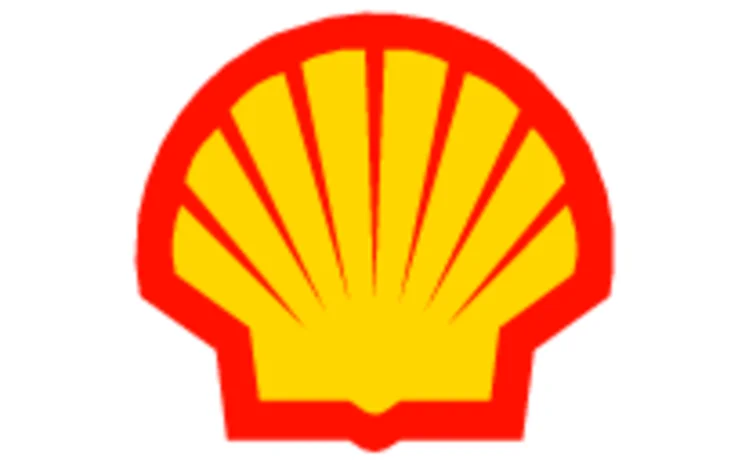
Corporate statement: Are you re-evaluating your energy risk management provider?

You should be, because the playing field has changed. In just the last few months, we have observed the deterioration of the world’s credit markets. A particular concern is the bankruptcy of some of the world’s leading investment firms, coupled with several of the other top financial institutions being downgraded, facing potential government oversight and consolidation, and retrenchment to their core business – banking.
As we’ve recently witnessed, you need more than a good credit rating and a name to be a strong energy risk manager. In today’s economic reality, you need an energy risk management provider with solid financial backing and a strong presence in both the physical and financial markets.
“We’ve always known it, but it has become painfully obvious to others that, to be successful in the energy risk management arena, it’s imperative to be immersed in both the physical and financial aspects of energy,” says John Preble, vice president risk management – commercial sales for Shell Energy North America. “At Shell Energy, this is our core focus.”
Companies that are most affected by volatile energy prices – such as utilities, independent power producers and oil and gas producers, as well as large commercial and industrial users – may want to re-evaluate which firms they turn to for their energy risk management needs.
Historically, risk management providers with energy production as a core component of their business have weathered economic downturns well. Having access to all aspects of the energy value chain from upstream to downstream as well as extensive experience and knowledge of the global industry gives these companies, like Shell Energy, the resources to weather the storms.
Despite the global economic downturn, Shell Energy is expanding its energy risk management team to continue to meet its growing customer business.
Shell Energy is the US-based subsidiary of Royal Dutch Shell plc, (Shell) and offers a comprehensive portfolio of energy-related products and services associated with natural gas, power and environmental products. Shell Energy’s risk management product portfolio offerings, including a variety of derivative instruments and structured products, help its customers to carefully manage their energy costs and cash flow.
Shell Energy applies the same tools and capabilities to its customers’ needs that Shell uses to manage its own day-to-day trading activities around Shell’s worldwide asset base.
Shell Energy is the primary marketer of Shell’s North American natural gas and power and benefits from access to a strategic portfolio of power generation and gas storage assets. Shell Energy’s Q4 2008 natural gas sales volume was 13.8 billion cubic feet per day and its wholesale power volume was 52.2 million megawatt hours, as was reported in industry price reporting journals.
In addition to buying and selling physical gas and power, Shell Energy has aggressively grown its business through a number of strategic acquisitions.
In February 2009, the company announced the acquisition of Enspire Energy, a Virginia-based energy marketing company serving customers throughout the mid-Atlantic US. And, in June 2007, Shell Energy, then known as Coral Energy Holding, L.P., acquired Avista Energy. That acquisition further expanded Shell Energy’s reach into growing Pacific Northwest, Rocky Mountain and Canadian markets.
Shell Energy was the first company to execute a futures trade of a US Federal compliance instrument on the Chicago Climate Futures Exchange and also the first company to trade futures contracts on Regional Greenhouse Gas Initiative allowances on the same exchange.
The company’s risk management capabilities are strong and have been recognised across the industry. Shell Energy was recently awarded Energy Risk magazine’s 2008 Natural Gas House of the Year, which it also won in 2005.
“Shell Energy, through its affiliation with other Shell subsidiaries, is able to offer its customers the benefits of a global presence, financial stability and innovative solutions, ethical practices and dedication to customer needs,” added Glenn Wright, Shell Energy senior vice president.
With global trading volumes of 8 million barrels of crude oil per day; 4 million barrels of refined products per day; and more than 3 million barrels of oil equivalent in natural gas and power per day, Shell – through its affiliated companies, including Shell Energy – has the skill base and international scope to help address the energy risk management needs of its customers, including producers and end-use commercial and industrial users.
As companies re-evaluate their energy risk needs and providers, it is important for them to make sure that those providers are committed to the energy business.
“The one constant in the energy business is change. Having a provider whose primary focus is energy helps ensure they are constantly adapting to changes in the business. It is expensive and time-consuming to find the right energy risk provider, so it’s even more important to make that investment count by choosing a provider who will be in the business for the long term,” says Preble.
Shell Energy’s scope and depth in the energy business enables it to provide its customers a host of products and services. Shell Energy’s growth may be attributed to a variety of factors, not the least of which is its commitment to its customers and development of innovative, market-based product and service offerings. It’s also attributable to its ability to successfully seize opportunities when the markets are faced with adversity.
Top five considerations when selecting an energy risk management provider
1. Customer Focus
Ensure the provider is focused on your needs. Does the company have the knowledge, relationships and experience to enter new markets, develop solutions to address new situations based on market activity and economic cycles?
2. Assess Counterparty Credit Risk
Since the historically strong players are themselves experiencing significant challenges due to the economic environment, the importance of credit risk has intensified. Realise, as the value of your existing hedge increases, the importance of the financial strength of your hedge provider increases.
3. Commitment to the Energy Business
In cyclical industries such as the energy trading business you often see market participants come and go within those cycles. Historically, companies with energy production as a core component of their business have weathered these cycles well because it is the essence of their business. Access to all aspects of the energy value chain from upstream to downstream, as well as the depth of its employees’ experience and knowledge of the global industry, gives these companies the resources and ability to weather the storm.
4. Products and Services Flexibility
A critical component of flexibility is the ability to provide both physical and financial products, which is key to providing customised solutions revolving around individualised business needs.
5. Established Framework and Policies
Does the risk management provider have a strong set of business principles and are those principles more than just a mission statement hanging on a wall? Risk management providers should provide their employees with a supportive framework, complete with robust checks and balances to ensure regulatory compliance. This is really critical today with so much changing legislation pending in the US Congress. It is imperative that risk management providers have the ability and experience of adapting quickly to any resulting changes.
Please click here to view a full PDF of the articlel
Sponsored content
Copyright Infopro Digital Limited. All rights reserved.
You may share this content using our article tools. Printing this content is for the sole use of the Authorised User (named subscriber), as outlined in our terms and conditions - https://www.infopro-insight.com/terms-conditions/insight-subscriptions/
If you would like to purchase additional rights please email info@risk.net
Copyright Infopro Digital Limited. All rights reserved.
You may share this content using our article tools. Copying this content is for the sole use of the Authorised User (named subscriber), as outlined in our terms and conditions - https://www.infopro-insight.com/terms-conditions/insight-subscriptions/
If you would like to purchase additional rights please email info@risk.net
